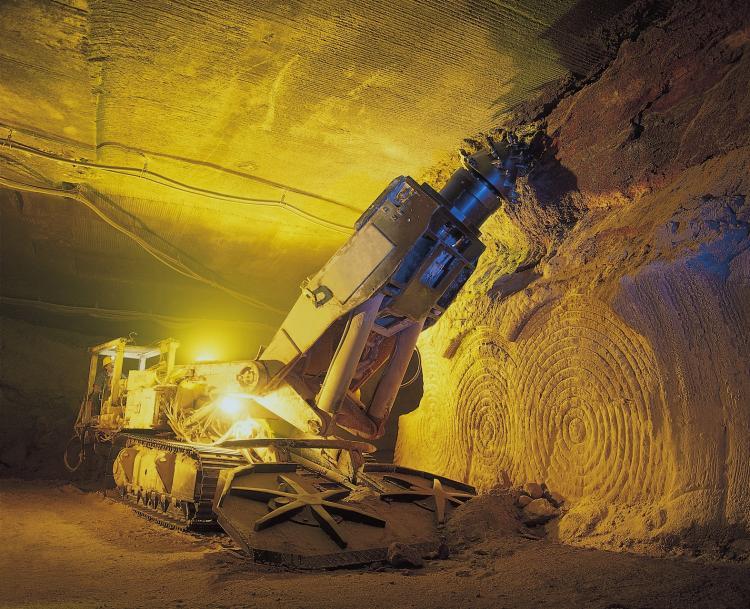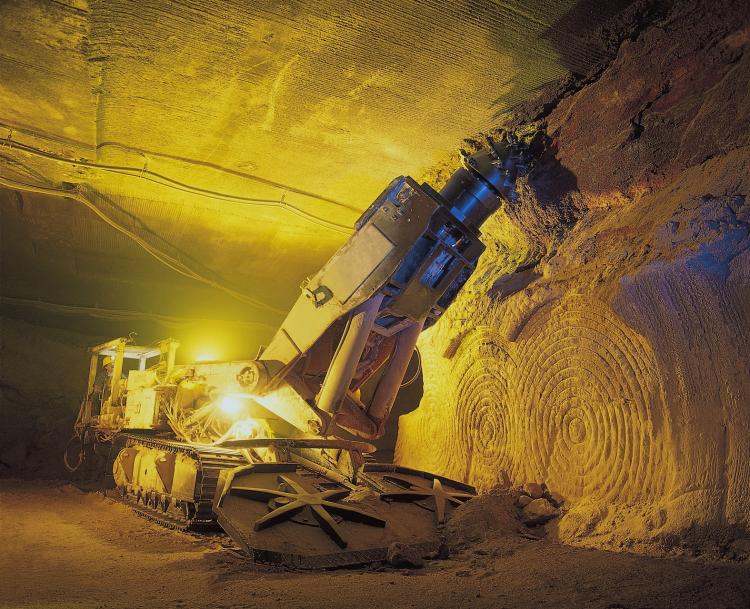After much speculation, Industry minister Tony Clement announced Wednesday that he is not approving BHP Billiton’s hostile takeover bid for Potash Corp. of Saskatchewan.
“I can confirm that I have sent a notice to BHP Billiton indicating that, at this time, I am not satisfied that the proposed transaction is likely to be of net benefit to Canada,” Clement said in a statement.
BHP now has 30 days to make changes and resubmit an offer, after which Clement will announce his final decision. The minister said he cannot discuss the specifics of the case due to confidentiality provisions but will provide an explanation once he has made his final decision.
Under the Investment Canada Act, BHP’s proposal had to be reviewed to ensure it will result in a net benefit to Canada.
Saskatchewan premier Brad Wall had campaigned strongly to block the $40 billion bid by the mining giant, saying it will benefit neither the people of his province nor Canadians.
He said the takeover would have a negative result on jobs and investment, provincial revenues, as well as “Canadian control of an important Canadian resource.”
“We simply cannot take that risk with this valuable resource that belongs to the people of Saskatchewan,” Wall said in a statement.
Last week, Saskatchewan Energy and Resources Minister Bill Boyd along with Enterprise Minister Jeremy Harrison paid a visit to Clement to express their concerns if the takeover bid is allowed to proceed.
Speaking before Parliament last month, Prime Minister Stephen Harper said the government will hear from all sides in the matter and make a decision based on the Investment Canada Act.
In what some saw as a hint favouring non-intervention, Harper also mentioned that the proposal is “for an American-controlled company to be taken over by an Australian-controlled company.”
Canadian shareholders own 49 percent of Potash Corp., while American shareholders account for 38 percent out of the 51 percent foreign-owned shares. Some of the head-office jobs of the company are currently in Chicago, though the company has promised to relocate some of its top executives back to Saskatoon. Nine of 12 directors of the company are Canadian.
BHP has also promised to locate the head office in Saskatchewan and maintain the current levels of employment.
Canada has only used the act to block a foreign takeover once before when it refused a bid by U.S.-based Alliant Techsystems Inc. for MacDonald Dettwiler & Associates Ltd.’s space division in 2008.
Laurence Booth, a finance professor at the University of Toronto Rotman School of Management, says what is different in this case is that Potash is a resource company, whereas MacDonald Dettwiler is a technology company.
“The critical thing there is that the technology can be taken out of the country, but resources basically are within the country and they are controlled, so foreign ownership over resources poses less problems for Canada than foreign ownership of manufacturing or technology,” he says.
Opposition to the takeover would set precedence and be a sore spot in the country’s claims of encouraging foreign investment, Booth says.
“What’s at stake is Canada’s reputation being open for business, and for the fact that we do not put road blocks generally in the face of companies taking over Canadian corporations.”
But the decision was not an easy one for the Conservatives, who do not want to lose the 13 constituency seats they currently posses in Saskatchewan in the next election.
Saskatchewan has also received support from other provincial governments and federal opposition parties who do not want to see the takeover happen.
A report by the Conference Board of Canada commissioned by the government of Saskatchewan says a takeover by BHP Billiton would mean Potash’s senior management would change from a North American dominated one to an Australian/South African/British one.
It also noted the acquisition would result in a loss of $200 million per year for 10 years since BHP would be able to write off capital costs of another project the company is currently pursuing in the province against profits made by Potash.
The company launched a lawsuit in U.S. against BHP in September alleging that the company misrepresented facts related to its takeover bid, and has requested a preliminary injunction to block the bid.
Potash has expressed that the US$130 per share offered by BHP undervalues the company.
“I can confirm that I have sent a notice to BHP Billiton indicating that, at this time, I am not satisfied that the proposed transaction is likely to be of net benefit to Canada,” Clement said in a statement.
BHP now has 30 days to make changes and resubmit an offer, after which Clement will announce his final decision. The minister said he cannot discuss the specifics of the case due to confidentiality provisions but will provide an explanation once he has made his final decision.
Under the Investment Canada Act, BHP’s proposal had to be reviewed to ensure it will result in a net benefit to Canada.
Saskatchewan premier Brad Wall had campaigned strongly to block the $40 billion bid by the mining giant, saying it will benefit neither the people of his province nor Canadians.
He said the takeover would have a negative result on jobs and investment, provincial revenues, as well as “Canadian control of an important Canadian resource.”
“We simply cannot take that risk with this valuable resource that belongs to the people of Saskatchewan,” Wall said in a statement.
Last week, Saskatchewan Energy and Resources Minister Bill Boyd along with Enterprise Minister Jeremy Harrison paid a visit to Clement to express their concerns if the takeover bid is allowed to proceed.
Speaking before Parliament last month, Prime Minister Stephen Harper said the government will hear from all sides in the matter and make a decision based on the Investment Canada Act.
In what some saw as a hint favouring non-intervention, Harper also mentioned that the proposal is “for an American-controlled company to be taken over by an Australian-controlled company.”
Canadian shareholders own 49 percent of Potash Corp., while American shareholders account for 38 percent out of the 51 percent foreign-owned shares. Some of the head-office jobs of the company are currently in Chicago, though the company has promised to relocate some of its top executives back to Saskatoon. Nine of 12 directors of the company are Canadian.
BHP has also promised to locate the head office in Saskatchewan and maintain the current levels of employment.
Canada has only used the act to block a foreign takeover once before when it refused a bid by U.S.-based Alliant Techsystems Inc. for MacDonald Dettwiler & Associates Ltd.’s space division in 2008.
Laurence Booth, a finance professor at the University of Toronto Rotman School of Management, says what is different in this case is that Potash is a resource company, whereas MacDonald Dettwiler is a technology company.
“The critical thing there is that the technology can be taken out of the country, but resources basically are within the country and they are controlled, so foreign ownership over resources poses less problems for Canada than foreign ownership of manufacturing or technology,” he says.
Opposition to the takeover would set precedence and be a sore spot in the country’s claims of encouraging foreign investment, Booth says.
“What’s at stake is Canada’s reputation being open for business, and for the fact that we do not put road blocks generally in the face of companies taking over Canadian corporations.”
But the decision was not an easy one for the Conservatives, who do not want to lose the 13 constituency seats they currently posses in Saskatchewan in the next election.
Saskatchewan has also received support from other provincial governments and federal opposition parties who do not want to see the takeover happen.
A report by the Conference Board of Canada commissioned by the government of Saskatchewan says a takeover by BHP Billiton would mean Potash’s senior management would change from a North American dominated one to an Australian/South African/British one.
It also noted the acquisition would result in a loss of $200 million per year for 10 years since BHP would be able to write off capital costs of another project the company is currently pursuing in the province against profits made by Potash.
The company launched a lawsuit in U.S. against BHP in September alleging that the company misrepresented facts related to its takeover bid, and has requested a preliminary injunction to block the bid.
Potash has expressed that the US$130 per share offered by BHP undervalues the company.







